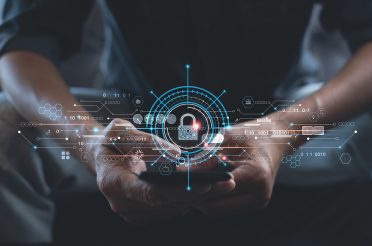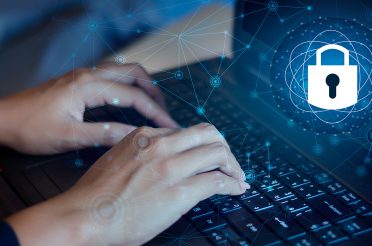The digital nomad lifestyle sounds idyllic, with visions of working on laptops in breathtaking locations. However, being a digital nomad presents unique challenges, especially when it comes to cybersecurity. As a nomad, or a road warrior, your devices are very important to you and protecting them is crucial wherever you go. In this article, we explore essential cybersecurity tips for digital nomads to ensure safety, security, and data protection.
The Importance Of Securing Your Devices
Being on the move, it is crucial to lock down devices by using strong passwords or PINs for each one. If available, authentication features like facial recognition or fingerprints can play a role. For example, Apple’s Face ID and Touch ID offer additional security layers for their products, and similar capabilities are available on most Android devices as well.
Regularly updating the device software, including apps, security software, and the operating system is also important. Updates often address known vulnerabilities and can improve the performance of a device.
Safeguard Your Internet Connection
Café or hotel Wi-Fi networks are convenient, but they offer threats to digital nomads. They are unsecured, making them susceptible to hacking and data theft. Avoid café and hotel WiFi wherever you can. If you must use public Wi-Fi, verify the network that you are joining and use a Virtual Private Network (VPN), which will strengthen the privacy of your connection, and use a reputable VPN provider, as they offer stronger security and better services.
Cybercriminals create false Wi-Fi networks that appear legitimate, which are designed to trick you into joining these networks and exposing data. Use a portable hotspot or your phone’s tethering feature can be used to establish a private network if needed.
Protect And Strengthen Your Security
Online accounts contain valuable private information, making them attractive targets for cybercriminals. Implement multifactor authentication (MFA) whenever possible. MFA requires additional verification, which significantly reduces the risk of unauthorised access even if your password is compromised.
Utilise complex and unique passwords, combining a variety of characters. Password managers can help generate and remember strong passwords for you. Memorise the master password of your password manager (use a lengthy passphrase where you can) and avoid recording it anywhere. If travelling, update the password manager with the countries that you plan to visit, to prevent an unexpected lockout.
Regularly back up your data to safeguard against loss and utilise a physical storage device, such as an external hard drive, and online services like Google Drive or Microsoft OneDrive. Automatic backups ensure files are kept current and consider encrypting any physical storage that you use for additional security.
If you are a traveller having electronic copies of important documents like passports and visas is also advisable. In case of loss, electronic copies can serve as identification when seeking replacements. Set up an emergency plan, including backups or storage, in case you need to access copies of these types of documents. If you must keep digital copies of this sensitive information, keep it protected with multiple levels of access protection, to a cybercriminal, gaining access to your passport or driver’s license is a big win and they can use it to wreak havoc.
Use Caution When Browsing
Avoid interacting with links or files from unknown parties, as they can be vehicles for malware or phishing attempts. Be cautious when viewing unsolicited emails or text messages that appear to be legitimate, as their aim may be to trick you into revealing your personal information. If in doubt, don’t review, don’t respond and don’t click.
Always look for the HTTPS symbol in the form of a padlock in a browser’s address bar. If the website doesn’t show this padlock, the simple solution is to get off the website and don’t go back there. That website, no matter how well-intentioned is easily manipulated by malicious actors.
Keep your browser and its associated plugins as up-to-date as possible, which will assist with security vulnerabilities. You can implement automatic browser updates, and consider using a browser extension like HTTPS Everywhere, or Privacy Badger, to enhance your browser security.
Invest In Security Tools
Security software, from known and reputable sources, protects devices from various threats, and utilising a reputable security solution that offers real-time protection, automated updates, and the ability to scan for, and remove, viruses or malware is advisable.
And a physical security key like YubiKey can be used for enhanced security. These provide an additional layer of authentication, making it significantly more challenging for criminals to gain unauthorised access to your device.
Exercise Conscious Caution When Using Social Media
The various social platforms are great for staying connected and sharing travel experiences, but they also give away valuable insight to cybercriminals. Be mindful of what you post, especially if your social accounts are set to public view. Avoid disclosing precise current locations or future travel plans, as these can be exploited for security or extortion attempts.
Review the privacy-related settings in your social accounts and restrict the ability for others to view your personal information, and be cautious when accepting friend requests from people that you do not know, as there may be malicious intent behind them.
Security And the Digital Nomad Lifestyle
By being vigilant and following these fundamental tips you can protect your privacy and safeguard your data, and remember, cybersecurity is a constant process that requires effort, but it will provide you with peace of mind.
If you are planning to travel, Ayron can help to keep your information safe. Contact us today to find out what we can do for you.








